
In Australia, ‘false information’ leads Malaysians to conflate bumiputra policy with rights for first peoples
- Australians are set to vote on whether to enshrine ‘a voice’ for indigenous citizens in the constitution
- Amid heated debate across the nation, analysts say some people of Malaysian origin are ‘falsely’ linking the referendum to Malaysia’s nativist policies 50 years ago
On October 14, voters will decide if they want a constitutional change that will enshrine “a voice” for Australia’s Aboriginal and Torres Strait Islander people by creating a representative body to provide non-binding advice to Canberra, centuries after their populations suffered massacres and systemic segregation by colonists.
The “Voice to Parliament” campaign has attracted heated debate around the country and in the Malaysian community, the trauma of fleeing the “bumiputra” policy has resurfaced for some ethnic Chinese.
Teik Hock Lim, a retiree in Sydney of Malaysian-Chinese origin, said he was taken aback when he heard two Malaysian-Chinese patrons at a restaurant criticising the referendum for relegating them to “second-class” citizens, just as they were in Malaysia. “There are many campaigns spreading false information by insinuating that the referendum and the issues in Malaysia are the same,” Lim said.
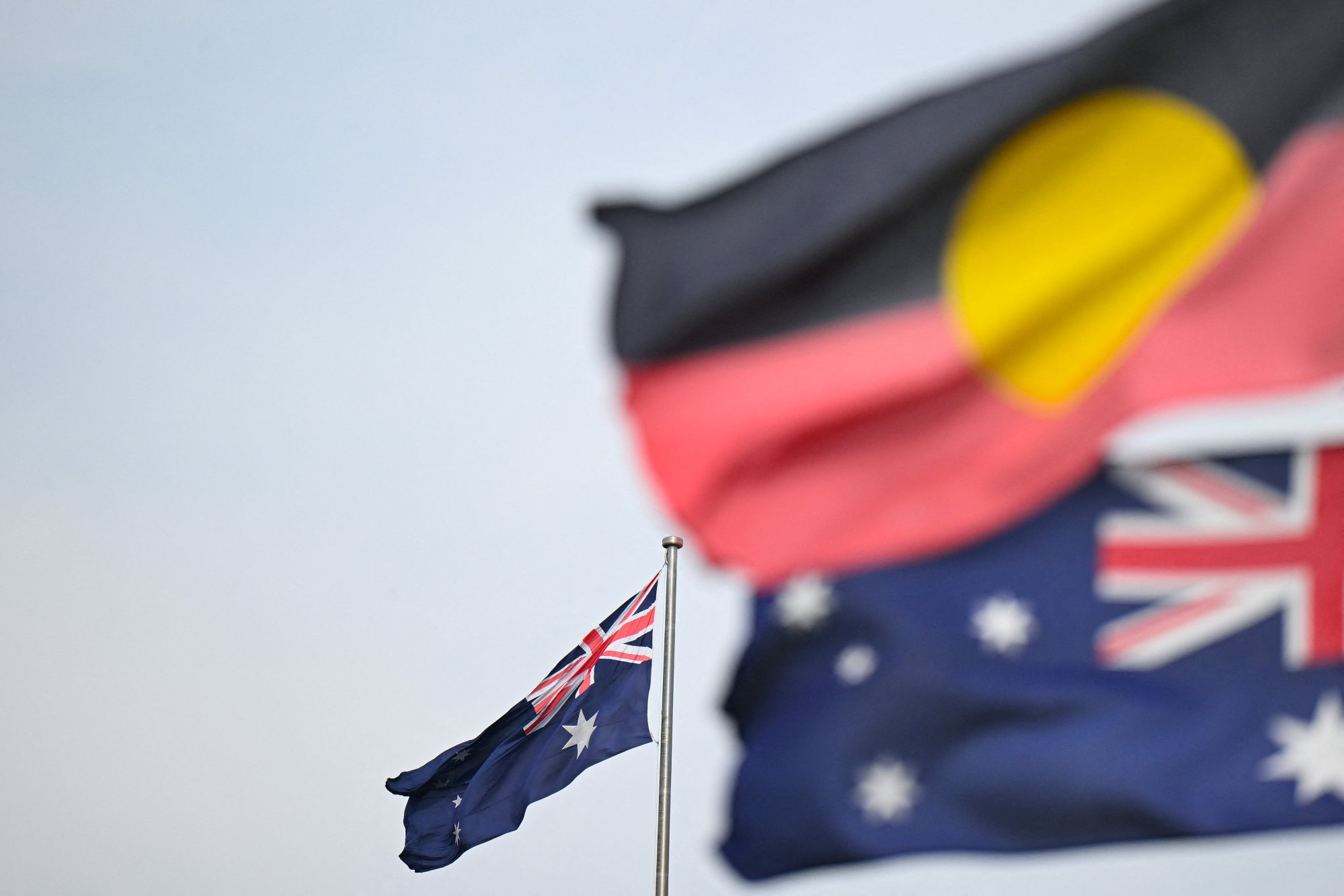
Experts say the two policies bear little resemblance, but it reveals how the referendum has been dogged by scare campaigns and vitriolic exchanges since it was first contemplated in July last year.
The comparison between bumiputras and Australia’s first peoples is “a false one”, said Yeow Tong Chia, president of MASSA, the peak academic association in Australia devoted to the study of Malaysia and Singapore.
“Bumiputras hold the political power in Malaysia, but the Australian indigenous people are nowhere near wielding political power in Australia, and the referendum will not result in them gaining some.
“I think a number of Malaysian-Aussies are unaware of the history of dispossession and cultural genocide suffered by first nations people, or if they are aware, they consign this to the past and are ignorant or dismissive of the historical legacies.”
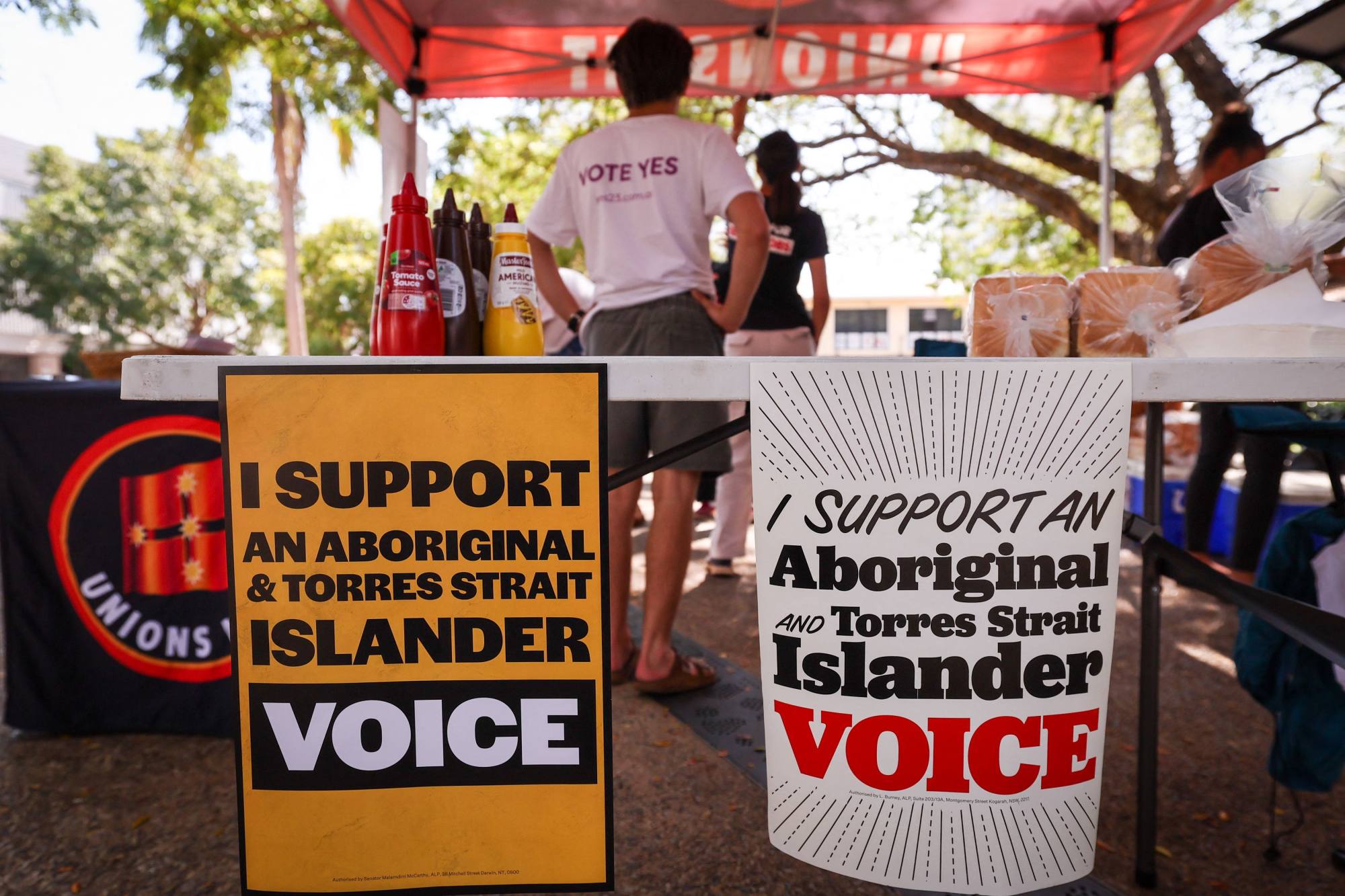
‘Torment of powerlessness’
Studies have shown that colonial paternalistic policies have been imposed on indigenous Australians often in their “best interest” and without their consent, yet the problems that affect them are different from other Australians.
For example, research by Australia’s Productivity Commission shows indigenous Australians suffer intergenerational trauma as a result of colonisation, which often leads to social issues such as alcohol and drug misuse and violence.
The Australian Human Rights Commission said that while services such as healthcare are offered to all Australians, racism and discrimination hindered indigenous access.
Indigenous people suffer “grossly disproportionate rates of disadvantage” against all measures of socio-economic status, it found.
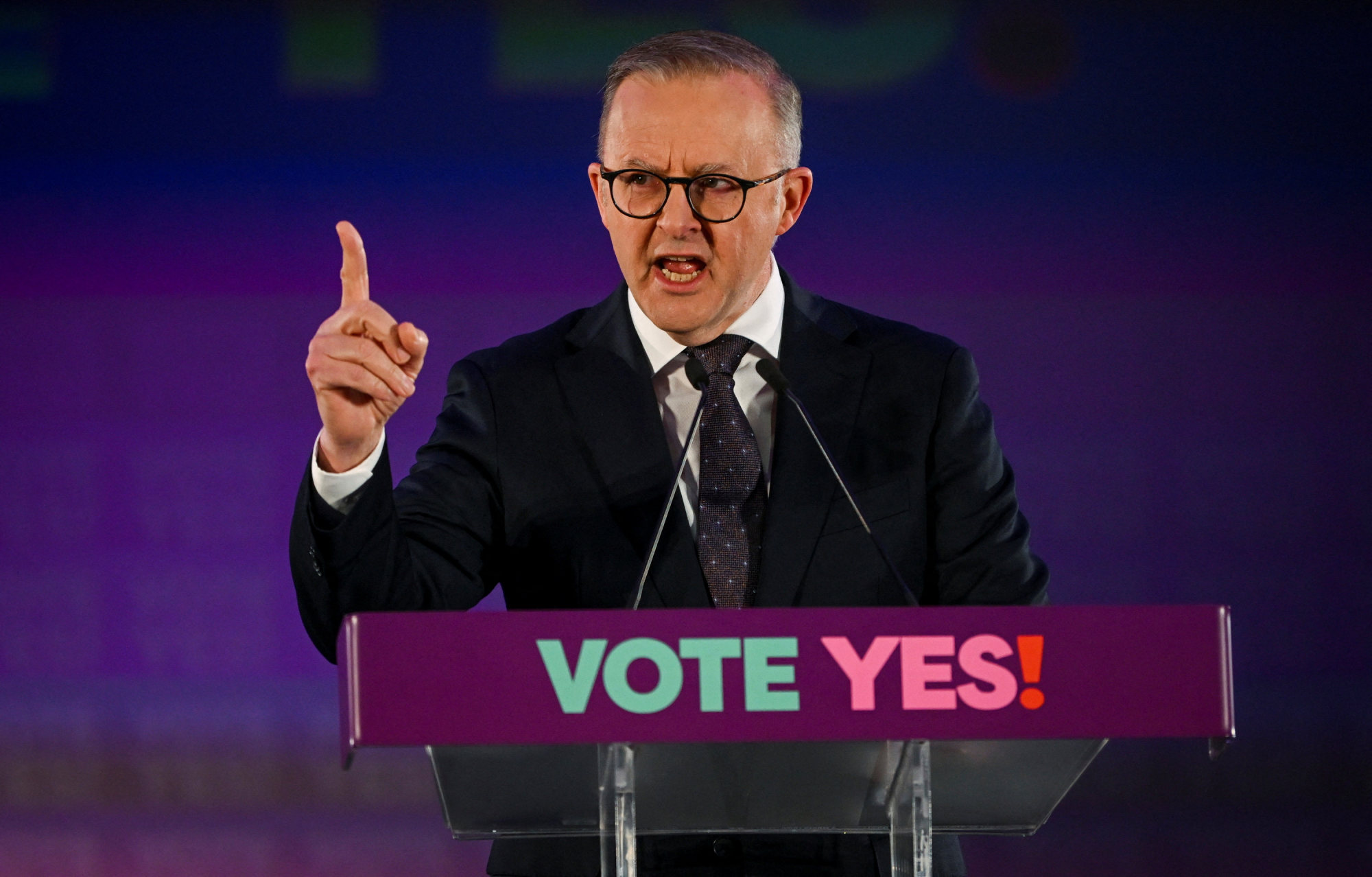
In 2017, first nations Australians put forward a historic petition called the “Uluru Statement from the Heart” which spelled out their “torment of powerlessness”.
Calling for reforms to recognise indigenous rights through the Voice – the subject of the referendum – it was a treaty that acknowledged indigenous sovereignty and a healing process involving telling the truth of suffering through colonisation.
The coming vote is the start of Prime Minister Anthony Albanese government’s election promise to implement the Uluru plea in full.
But not everyone is convinced and campaigns lobbying Australians to say “no” have been growing, led mainly by the conservative political lobby group, Advance. Former centre-right coalition prime minister Tony Abbott sits on its advisory board.
Its “Fair Australia” campaign says that a yes vote for the Voice would “wreck our constitution, rewire our democracy and divide Australians by race”.
Australia’s opposition leader Peter Dutton said the Voice would “have an Orwellian effect where all Australians are equal, but some Australians are more equal than others”.
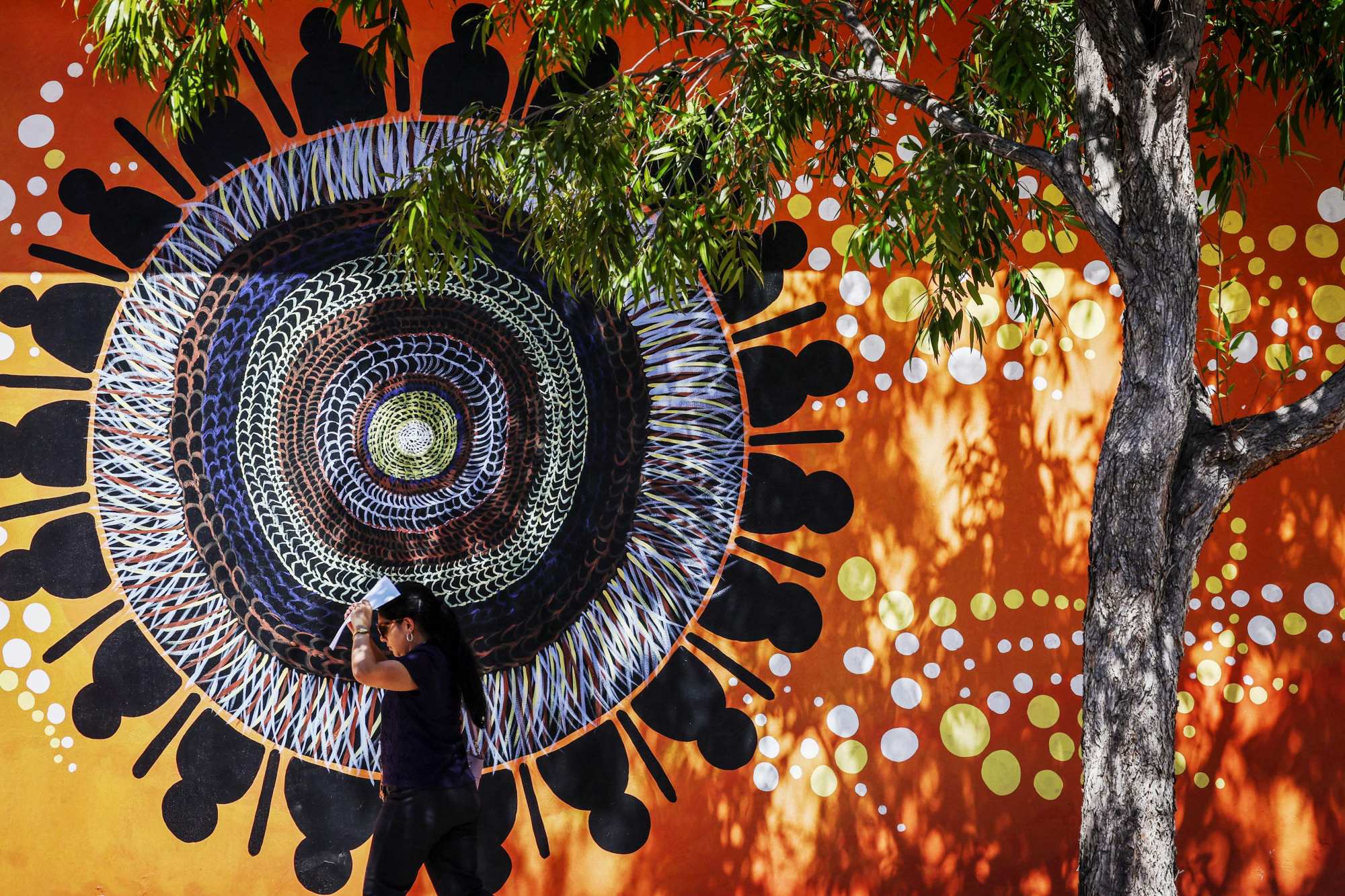
Not all indigenous Australians agree with the referendum, such as shadow indigenous minister Senator Jacinta Nampijinpa Price and businessman and former politician Warren Mundine.
They claim it would cause racial division and afford rights to Australians – based on their racial heritage – to have an extra say over policies. Moreover, within current policies, there are existing and other ways the government can support indigenous communities.
Independent Senator Lidia Thorpe said the proposed constitutional change “fakes progress without changing a thing”.
Many legal and constitutional experts have sought to debunk some of the No camp’s claims.
For example, Monash University’s law department said the referendum would not give first Australians special rights, quoting the nation’s constitutional expert group. All Australians have the right to make representations to parliament and the voice offers advice to parliament, not inside parliament.
A voice also does not “offend the notion of equality” that underpins the constitution and Australia’s democracy because the constitution itself does not protect equality, and actively allows for racially discriminatory laws, it said.
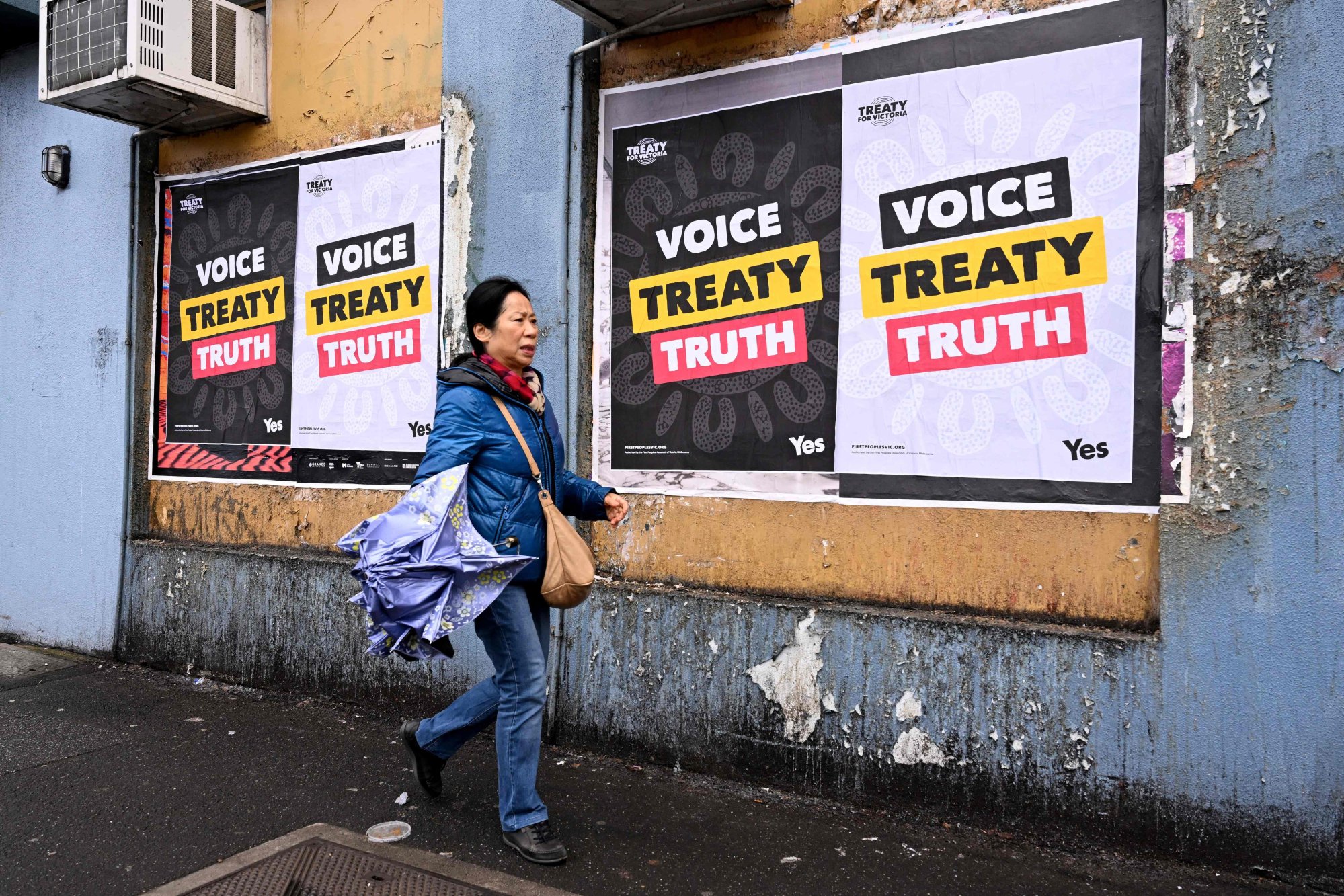
‘Kitchen conversations’
Still, Carlo Carli, chair of the Federation of Ethnic Communities’ Councils of Australia (Fecca), said the “no” campaign had become “quite nasty” and “powerful”, weeks out from the vote.
He said it appeared some opponents had been targeting vulnerable migrant groups – especially non-English speakers and those who had little engagement with indigenous communities – using “sophisticated” and “subterranean” means of disseminating information on social media, similar to fake-news techniques seen in the United States.
“There are a lot of rumblings, there’s a lot of activity in social media in particular,” he said. “In the Chinese community, it’s on WeChat; but it’s [also] on Facebook and sometimes it’s just word of mouth.”
Cali said, however, that more than 120 multicultural groups had pledged their support for a “yes” vote, and none had voiced concerns about being sidelined.
But Thomson Ch’ng, president of the Australian Malaysian Singaporean Association, said among Malaysian-Australians, whispers of disapproval against the referendum were alive and spread in person.
“A lot of conversations are happening behind the scenes, at kitchen conversations,” he said. “But linking the referendum and the bumiputra issue in Malaysia is not comparing apples and apples … the population of indigenous Malays who enjoy bumiputra privileges are the majority in the country.”
Malaysia’s majority Malays make up about 70 per cent of the country’s 34 million people. In Australia, indigenous peoples account for 3.8 per cent of 26 million people, according to the Australian Bureau of Statistics.
Gavin Choong, a young Malaysian-Australian community leader, said he was putting together more information sessions to educate those with limited knowledge of the law.
“The bumiputra issue is a valid concern that my parents had because they came to this country and worked hard … but in the end, I tell them, it’s not a zero-sum game,” he said.
Many experts and community leaders have condemned the “no camp” for targeting new migrant Australians.
Constitutional law expert at Macquarie University, Shireen Morris, said in an opinion piece earlier this year that the attempt to pit migrant communities against indigenous people had instead galvanised their support for the Voice.
Fecca’s chief executive Mohammad Al-Khafaji tweeted: “Trying to wedge migrant communities … not only won’t work, but it’s offensive to our community’s intelligence.”

